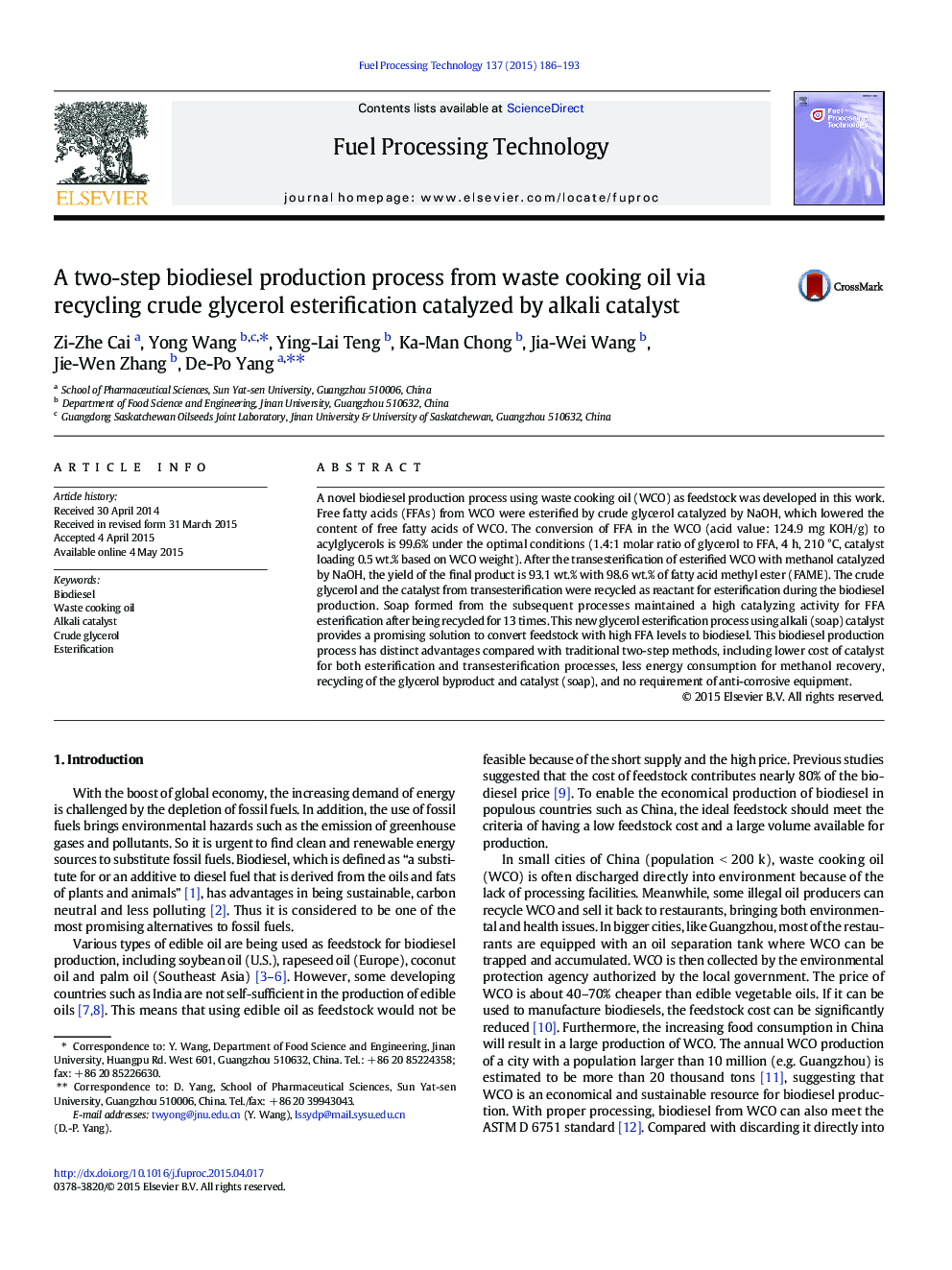| کد مقاله | کد نشریه | سال انتشار | مقاله انگلیسی | نسخه تمام متن |
|---|---|---|---|---|
| 209476 | 461671 | 2015 | 8 صفحه PDF | دانلود رایگان |
• A practical two-step process was developed to convert WCO with a high FFA content into FAME.
• Crude glycerol from the second step was recycled as reactant for the first step.
• An alkali catalyst was used in the esterification to lower FFA content of WCO.
• Excess glycerol separation is not needed in the esterification step.
• Significant energy and time saving have been achieved as compared to the traditional methanol esterification with methanol.
A novel biodiesel production process using waste cooking oil (WCO) as feedstock was developed in this work. Free fatty acids (FFAs) from WCO were esterified by crude glycerol catalyzed by NaOH, which lowered the content of free fatty acids of WCO. The conversion of FFA in the WCO (acid value: 124.9 mg KOH/g) to acylglycerols is 99.6% under the optimal conditions (1.4:1 molar ratio of glycerol to FFA, 4 h, 210 °C, catalyst loading 0.5 wt.% based on WCO weight). After the transesterification of esterified WCO with methanol catalyzed by NaOH, the yield of the final product is 93.1 wt.% with 98.6 wt.% of fatty acid methyl ester (FAME). The crude glycerol and the catalyst from transesterification were recycled as reactant for esterification during the biodiesel production. Soap formed from the subsequent processes maintained a high catalyzing activity for FFA esterification after being recycled for 13 times. This new glycerol esterification process using alkali (soap) catalyst provides a promising solution to convert feedstock with high FFA levels to biodiesel. This biodiesel production process has distinct advantages compared with traditional two-step methods, including lower cost of catalyst for both esterification and transesterification processes, less energy consumption for methanol recovery, recycling of the glycerol byproduct and catalyst (soap), and no requirement of anti-corrosive equipment.
Journal: Fuel Processing Technology - Volume 137, September 2015, Pages 186–193
